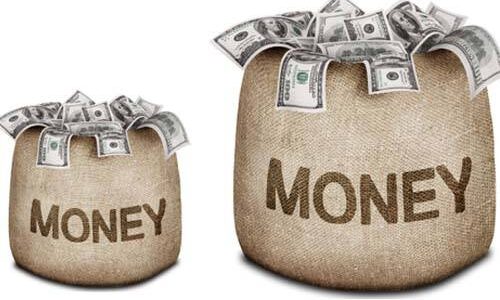Who Is A Mortgage Broker?
Before you obtain a loan, you ought to understand how mortgage lenders and brokers differ, so you recognize whose assistance you need. A mortgage lender works for a bank or financial organization to work out the qualification of borrowers and supply them with funds. However, a mortgage broker works with borrowers to assist them to go searching and find the acceptable lender for his or her circumstances.
Instead of researching different types of loans and lenders independently, mortgage brokers do the work for you. After they find the proper loan and lender for your financial situation, they assist you to gather the knowledge you would like to fill out your loan application. As results of the services brokers provide, you pay them a commission, which may be a percentage of your ultimate mortgage amount.
Before choosing to figure with a mortgage broker, you ought to understand how they operate. Some mortgage brokers primarily work with specific financial institutions and promote lenders with whom they need long-standing relationships.
Given the differences in their roles, the questions you’d ask a mortgage broker are different from those you’d ask a lender. Here are some important inquiries to ask a mortgage broker:
Why should I work with you rather than getting to a lender directly?
How will you negotiate on my behalf to make sure I buy better terms for my mortgage?
How will you discover the proper loan type and lender for our circumstances?
How much does one charge for your services?
Are there any specific lenders you’re employed with frequently?
Would you are feeling comfortable recommending a lender you don’t typically work with?
How long will it fancy to find a lender?
Learn More About Choosing A Mortgage Lender
Asking your lender a couple of questions before time can help make purchasing a home easier and fewer stressful for you. confirm you ask your mortgage lender – or broker – many questions on income requirements, the kinds of loans you qualify for, and the way much you’ve got to save lots of for a deposit and shutting costs.
Do You Offer Preapproval Or Prequalification?
Preapproval and prequalification are two processes that are often confused with one another.
Prequalification: During a prequalification, a lender asks you questions on your income, credit score, and assets to offer you an estimate of how large of a loan you’ll get. However, they don’t verify any of this information, which suggests that the amount you get during prequalification can easily change if you report misinformation.
Preapproval: During a preapproval, your lender verifies your income, assets, and credit information by requesting official documents, including your W-2s, bank statements, and tax returns. this enables your lender to offer you an accurate real estate loan figure.
Ask your lender about the difference between prequalification and preapproval, because it often doesn’t mean an equivalent thing. Then, ask which one is true for you. the solution will change counting on how serious you’re about buying a home at the time you apply.
What’s The deposit Needed to shop for A House?
You might assume that you simply need a 20% deposit to shop for a house. However, in some cases, you’ll buy a home with as little as 3% down. Certain sorts of government-backed loans even allow you to urge a mortgage with 0% down.
The often-quoted 20% figure has got to do with avoiding private mortgage insurance (PMI), which protects your lender within the instance that you simply default your loan. you’ll cancel your PMI on a standard loan as soon as you build 20% equity in your home, and your lender will automatically cancel PMI as soon as you reach 22% equity in your home.
Check with your lender to seek out out what proportion of a deposit you would like to possess at closing. Ask about government-backed loans and whether you qualify for a 0% down loan. Finally, ask about PMI requirements, and once you can cancel PMI if you’re required to possess it.
What Will Closing Costs Be?
Closing costs are processing fees you pay to your lender to shut out your loan. Some typical closing costs include appraisal fees, origination fees, attorney fees, and title insurance. the precise closing costs you’ll pay depend upon where you reside, your deposit, and therefore the size of your property. Closing costs will usually run 3% – 6% of the entire value of your loan.
Ask your lender about the typical closing costs in your state. Also, ask what fees and inspections are required by law, which are optional, and which services you’ll choose for yourself.
Is There A Prepayment Penalty?
After you begin paying off your mortgage, you’ll find that you simply have more access to funds than you initially thought and are ready to pay off your mortgage early. If you’ll swing it, this feature can prevent thousands of dollars in interest. However, not all mortgage lenders allow clients to try to do so, which is why you ought to ask your lender before time.
If they are doing allow you to pay off your loan faster, you ought to ask whether there are any prepayment penalties. Mortgage lenders often charge these fees to dissuade borrowers from making extra payments on their loans, refinancing their loans at a lower rate, or selling their home before the loan is due. Prepayment penalties enable mortgage lenders to recoup a number of the cash that they might have made off of your loan had you continued to form monthly payments through the top of your loan term. for instance, Rocket Mortgage® has no prepayment penalties.
There are differing types of prepayment penalties: soft and hard.
With a soft prepayment penalty, borrowers are ready to sell their homes without being penalized but are charged if they refinance.
With a tough prepayment penalty, borrowers are required to pay fees no matter whether or not they sell their home or refinance it.
If your mortgage lender charges prepayment penalties, confirm to ask what proportion they cost. How prepayment penalties are charged varies among lenders – they will be very expensive and make early payoffs unprofitable.




